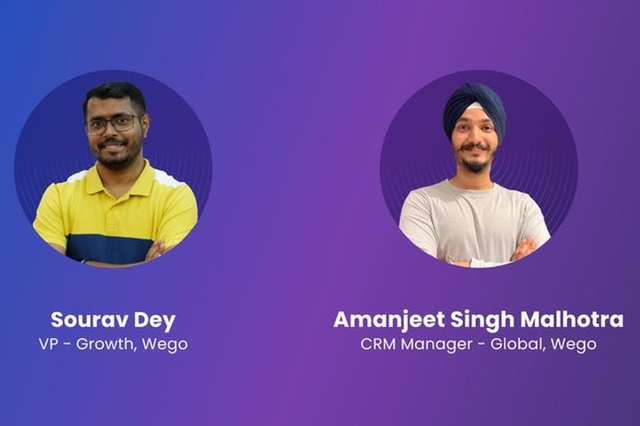Customer engagement and retention specialist WebEngage has released a case study, shedding light on strategies and technologies that enabled the global travel marketplace Wego to achieve an outstanding conversion rate. Wego has registered a 20X increase in email open rates and 27,000 unique conversions every day. These figures have significant implications for the travel industry, where the average conversion rate for email is around a measly 4.7%.(1) In the case study, WebEngage illustrated, in detail, how data, push notifications, and personalization strategies led to Wego’s remarkable feat.
One look at the travel and tourism landscape, and you will notice fierce competition among aggregators. Competition begets dynamic price points, leading to a lack of loyalty among customers. Less conversion naturally impacts sales, undermining the brand’s ability to offer the best possible prices in subsequent campaigns. Thus begins a vicious cycle. Conversely, a virtuous cycle would involve optimizing operations, engaging customers effectively, earning loyalty, enhancing sales, and offering industry-best prices. Wego’s association with WebEngage was rooted in this objective.
How Wego achieved conversion
Wego has a strong focus on users in MENA and the Asia-Pacific and holds the number 1 rank in travel bookings in the KSA. Following the pandemic-induced decline in international travel — about 61% drop worldwide(2) — the brand redefined its objectives, which included giving users a seamless experience, engaging them effectively on the app and the website, and offering the best possible prices. Wego’s objectives found an enabler in WebEngage’s easy-to-use full-stacked tool for data analysis, insights, and communications. The platform proved to be a bedrock for effective journey designing, notification optimization, and hyper-personalized communication.
“WebEngage’s marketing automation platform has enabled us to deliver personalized experiences to each traveller around the globe. We are now able to engage with our customers and maximize conversions. With the help of automated user engagement journeys, we’ve been able to plan, execute and amplify campaigns at scale, which brings us more revenue, thereby enabling us to give the best possible pricing to our end-users,” explained Sourav Dey, VP – Growth, Wego. As Sourav noted, Wego went on to register nearly 27,000 daily unique conversions through push notifications as email open rates increased 20 times(3).
Optimization of notifications
Creating an effective sales funnel is a complex process with multiple considerations. If a user initiates a search and abandons midway, then the re-engagement process begins through push notifications on mobile and the web. However, this process also runs the risk of disengagement if hurried or pursued haphazardly. Wego leveraged insights on WebEngage’s dashboard to optimize email send time as per events and triggers. Communications were further refined through drag-and-drop builders and A/B Testing. For instance, customers interested in hotel bookings received alerts a day after abandoning the search. The corresponding waiting time for flight searches was two days.
Designing journeys based on insights
Analytical tools that help understand customers’ preferred routes, touch-point tendencies, and behaviours are instrumental in designing a journey. The objective is to meaningfully communicate with users at every point in their journey. Wego, powered by WebEngage’s analytical tool Paths and an insight-led notification strategy, was able to not only reduce drop-offs but also open up cross-selling opportunities. In the tourism industry, with verticals such as hospitality, transportation, and services, unlocking cross-selling opportunities has great implications for business outcomes.
By Wego’s admission, the conversions during JFM increased by 28%. And the conversions from flight and hotel searches increased by 26.5%, on average. “The onboarding and customer success team at WebEngage made the integration process for us hassle-free and convenient. Within a few weeks, we were ready to go live with our primary use cases, and the speed at which queries and concerns were handled was brilliant,” said Amanjeet Singh Malhotra, CRM Manager – Global, Wego.
By and large, user-level data is proving to be of great consequence to travel aggregators hoping to personalize their customer engagement across channels. Taking into account that the travel industry is increasingly coming under the digital purview, the possibility of harnessing data and analytics is only set to grow. While it is true that the pandemic was a “black swan” event for the industry, it has paved the way for a renewed growth phase by supercharging digitalization. As far as the Middle East is concerned, such developments couldn’t come any sooner as the region gears up for its maiden FIFA World Cup, among other tourism-oriented events.

